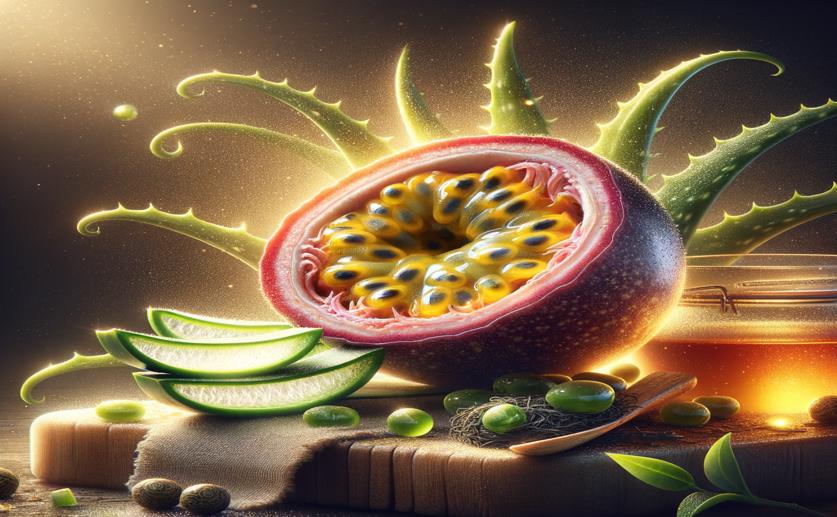
Aloe Vera and Tea Extract Coating Helps Passion Fruit Stay Fresh Longer
Jenn Hoskins
1st July, 2024

Image Source: Natural Science News, 2024
Key Findings
- A study by Hainan University explored using Aloe vera and tea polyphenols to preserve "golden" passion fruits during storage at 10°C
- The ALV + TP coating reduced weight loss by 41.60%, shrinkage by 28.13%, and decay by 50% over 28 days
- Treated fruits stayed firmer, produced less ethylene, and had a delayed respiration peak by six days, extending their shelf life
References
Main Study
1) Aloe vera and tea polyphenols composite coating delays passion fruit senescence by promoting phenolic and flavonoid accumulation.
Published 30th June, 2024
https://doi.org/10.1016/j.foodres.2024.114594
Related Studies
2) Plant Secondary Metabolites: The Weapons for Biotic Stress Management.
3) Phenolic compounds, bioactivity, and bioaccessibility of ethanol extracts from passion fruit peel based on simulated gastrointestinal digestion.
4) Integrated transcriptomic and metabolomic analyses reveal key genes controlling flavonoid biosynthesis in Citrus grandis 'Tomentosa' fruits.



 23rd June, 2024 | Jenn Hoskins
23rd June, 2024 | Jenn Hoskins